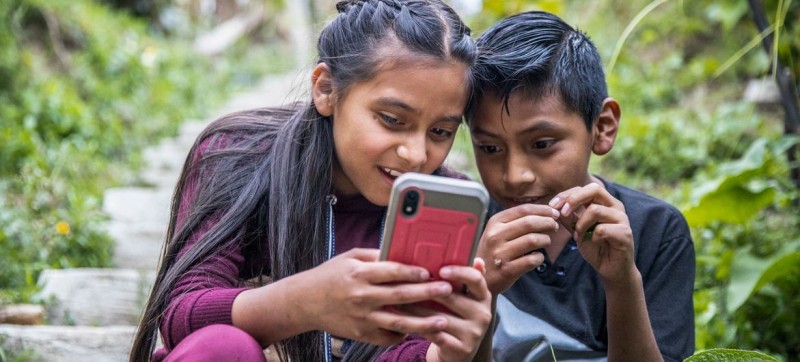© UNICEF/Patricia Willocq Two children play outside while their parents participate in a workshop about online security in Guatemala.
As misleading articles or deceptive memes continue to pop up up in timelines and newsfeeds, the course helps users to sort through and separate what is real from what is not – helping everyone to stem the increasingly concerning churn of viral propaganda.
Fighting misinformation
Since 2020, the UN’s Verified initiative to improve access to accurate online information and wikiHow, have been collaborating to help users stay safe from misinformation and disinformation.
After the UN’s How to fight misinformation course was shown to help participants recognize and build confidence in recognizing and countering misinformation online, it became a finalist for Fast Company’s World Changing Ideas 2022.
In its latest update, wikiHow and Verified are helping users to spot deliberately inaccurate content, created to deceive and cause harm.
The free course explores how misinformation propagates, and teaches participants how to identify some of the common tactics used to spread it, such as autonomous online programmes that can interact with systems or users, known as bots.
Also highlighted are fabricated content; hacked accounts; and trolls, or users who intentionally aim to instigate confrontation and hostility.
Pause and question
The course encourages users to be sceptical about new information and to take a second to consider it before sharing.
“Don’t just scroll by accepting it as fact or share the information without exercising some scepticism first”, urges the UN.
Misinformation can be harmful and should be verified as legitimate before being passed on, including information sources and dates.
“Look up the information at the source to see if it was actually published there. Double-check the date of the article or info to make sure it’s current and still accurate”, the UN advises. “Usually, the date is located next to the author of the article”.
For instance, if a post cites a news organization on a terrorist attack, readers should check that publication’s official website to ensure it really originated there.
The date can be extremely important. An article about new coronavirus cases from six months ago, may no longer be accurate.
One tip the course offers is that image dates can be checked by dragging the image into the browser search box, then clicking the search button.
Naming names
Users are also urged to locate the original source of content to make sure that the author is an expert before taking their word for it.
“If an article or information doesn’t list the author, it’s a sign that it could be false or misleading information”, warns the UN.
The course also recommends that users check claims on other online sources to ensure that they are making similar statements; be cautious of information that triggers a strong emotional response; read text for sensational language or loaded terms; and keep an eye out for insulting or offensive language.
“We can all take action to help stop the spread of disinformation,” said the UN.
The course is currently available in English, Czech, German, French and Russian.




Comments are closed, but trackbacks and pingbacks are open.